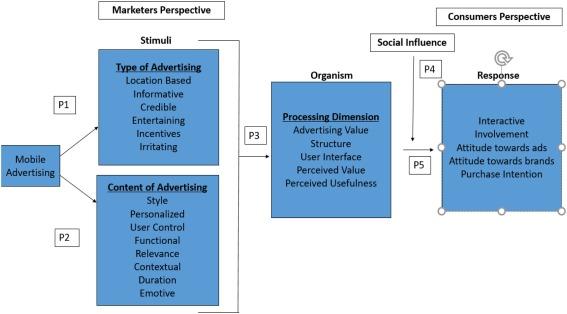Top Strategies for an Events Coordinator in Education Technology: Boost Engagement & success
If you’re aiming for a career as an Events Coordinator in education technology at a university, college, or school, you’re stepping into a dynamic role that bridges innovation, technology, and community engagement. Education technology (EdTech) events play a vital part in professional growth, student success, and the technological advancement of educational institutions.In this article, we share top strategies, practical tips, and key benefits that will help you thrive and stand out in this rewarding field.
Understanding the Role of an Events Coordinator in Education Technology
As an Events Coordinator in education technology, you’re responsible for conceptualizing, organizing, and executing events that spotlight technological advancements and enhance educational outcomes. These events may range from EdTech conferences and workshops too virtual seminars, hackathons, or product showcases.
- Facilitating collaboration between educators,students,and tech experts
- Promoting digital literacy and innovation on campus
- Driving adoption of new tools and platforms
- Ensuring logistical excellence and engagement throughout the event lifecycle
Key Strategies for Successful Events coordination in EdTech
1. Align Events With Institutional Goals
Every educational event should further the broader objectives of your institution. Whether it’s boosting digital skills,fostering research partnerships,or supporting faculty with the latest technology,clear alignment ensures relevance and buy-in from stakeholders.
- Understand your university, college, or school’s technology strategy
- Meet regularly with academic and IT leaders
- Establish measurable goals for each event (attendance, feedback, tech adoption rates)
2.Leverage Digital Platforms and Tools
Utilize cutting-edge event management platforms to streamline invitation processes, registrations, communications, and post-event analytics. For digital or hybrid events, select robust virtual conferencing and collaboration platforms.
- Automate sign-ups and reminders to increase attendance
- Offer virtual participation to widen access
- Archive sessions for future on-demand learning
3. prioritize Inclusivity and Accessibility
Make your EdTech events accessible to all students, faculty, and community members. Consider physical access, time zones, closed captioning, sign language interpreters, and diverse content delivery styles.
- Conduct accessibility audits of venues and digital platforms
- Record sessions and provide materials in multiple formats
- encourage feedback to continually improve inclusivity
4. Engage stakeholders in Event Planning
Successful education technology events are built with collaboration. Involve faculty, students, IT teams, and external partners in the planning process to ensure events meet real needs and foster stronger participation.
- Set up planning committees with representatives from key groups
- Conduct pre-event surveys to tailor programming
- Identify influential stakeholders as event ambassadors
5. Focus on Interactive Content and Hands-On Experiences
The most memorable EdTech events encourage active participation. Utilize workshops,hands-on demos,live polls,and Q&A sessions to maximize engagement and learning retention.
- Highlight innovative products or successful edtech use cases
- Invite guest speakers from both academia and industry
- Facilitate networking opportunities via breakout sessions or speed meets
Benefits of Effective Events Coordination in Education Technology
Coordinating impactful technology-centered events offers considerable benefits to both your institution and your own professional trajectory. Here are a few key advantages:
- Enhanced Engagement: Well-coordinated EdTech events foster active involvement from students and faculty, leading to greater adoption of new technologies.
- Professional Development: Events provide opportunities for educators to enhance their digital skillsets and remain current.
- reputation Building: Hosting innovative events elevates your institution’s profile in the competitive landscape of higher education and K-12 schools.
- networking: bringing together industry experts,researchers,and students boosts collaborative opportunities and career prospects.
- Personal Growth: As an Events Coordinator, you’ll sharpen project management, dialog, and leadership skills—all highly marketable assets.
Practical Tips for Aspiring Events Coordinators in EdTech
- Stay Updated: Follow EdTech trends and innovative teaching tools—being conversant in the latest technologies is key.
- Build relationships: Cultivate strong working relationships with vendors, institutional departments, and thought leaders to ensure successful partnerships and resource access.
- Communicate Clearly: Use clear, concise, and audience-appropriate messaging in all event materials and outreach.
- Collect and Analyze data: After each event, gather feedback and analyze metrics to identify successes and areas for improvement.
- Be Flexible: Technology and education are constantly evolving.Maintain agility to adapt plans rapidly in response to new opportunities or challenges.
Advanced Strategies to Maximize Impact
- Gamify Experiences: Introduce gamification elements like contests, achievement badges, or interactive leaderboards to boost engagement.
- Develop Year-Round Engagement: Rather than single events, plan a series or a community of practice with ongoing workshops, webinars, and discussion forums.
- Showcase Student innovations: Encourage student participation by providing platforms for them to demonstrate their own EdTech projects or research.
- Foster Cross-Institution Collaboration: partner with other universities, colleges, or schools to broaden perspectives and share best practices.
Building Your career in Education Technology Event Coordination
If you’re seeking a job as an events Coordinator in education technology,emphasize your organizational skills,technological savvy,and ability to engage diverse groups. Highlight past experience in event planning, digital communications, and collaborating with education professionals on your resume and in interviews.
- Showcase Relevant Experience: Include examples of coordinated events, particularly those involving technology or digital platforms.
- Highlight Technical Competence: Demonstrate comfort with EdTech tools, data analytics, and virtual conferencing solutions.
- Emphasize Soft Skills: Communication, teamwork, adaptability, and a service-oriented mindset are crucial for success.
- Network Proactively: engage with professional associations,attend EdTech conferences,and participate in online forums to build your reputation and connections.
Conclusion: Position Yourself for Success in EdTech Events Coordination
The role of an Events Coordinator in education technology at universities, colleges, or schools is both impactful and dynamic.By applying these strategies—aligning with institutional goals, leveraging technology, prioritizing inclusivity, building stakeholder relationships, and continuously learning—you can boost both event engagement and your career prospects.
Whether you’re new to the field or looking to advance, staying informed and adaptable is key. With the right approach and a passion for connecting people through technology-driven educational experiences, you’ll ensure event—and personal—success in the fast-growing world of EdTech.

